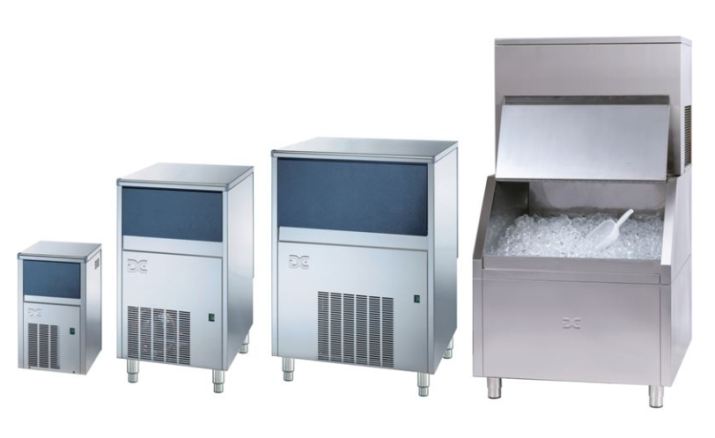Cool RunningExtract from TUCO magazine article February 2017 |

|
| < Back |
New innovations in refrigeration equipment have the potential to make life much easier for university caterers. From cold rooms and upright units to refrigerated drawers and ice machines, university catering outlets rely on different refrigeration to ensure a safe and smooth service. When it comes to icemakers operators need to ensure that these are also positioned in a well ventilated area with an ambient temperature and are regularly cleaned and maintained. "Ice makers use more water than just the water contained in the ice," explains Bob Wood, director at DC Warewashing and Icemaking Systems. "In fact, a typical ice maker uses two to four times more water than the volume needed to make the ice. There are two basic methods of ice production: air-cooled and water-cooled. Air-cooled machines are usually much more water efficient, using three to five times less water than water-cooled ones and have the added benefit of being able to be installed in areas where ventilation is poor. Water-cooled machines are usually more energy efficient." The importance of cleaning and servicing ice makers cannot be underestimated. Doing so can not only prolong the life of equipment, but improve efficiency too, particularly in hard water areas where limescale can build up, preventing the machine from working properly and risking bacteria growth. Buyer Beware! According to DC Warewashing & Icemaking Systems there has been an increase in the amount of low grade icemakers and icemaking systems on the market in recent years. Ice is considered a food by the FSA and all Health and Safety standards for food apply to ice. Don't risk being seduced by low price alone. Make sure that whatever machine you purchase adheres to the following standards:
Read full article in TUCO magazine February 2017 issue ... |
Read Similar
Licence to Chill |
Let there be life! |
Kitted Out |
Clean Catering |




